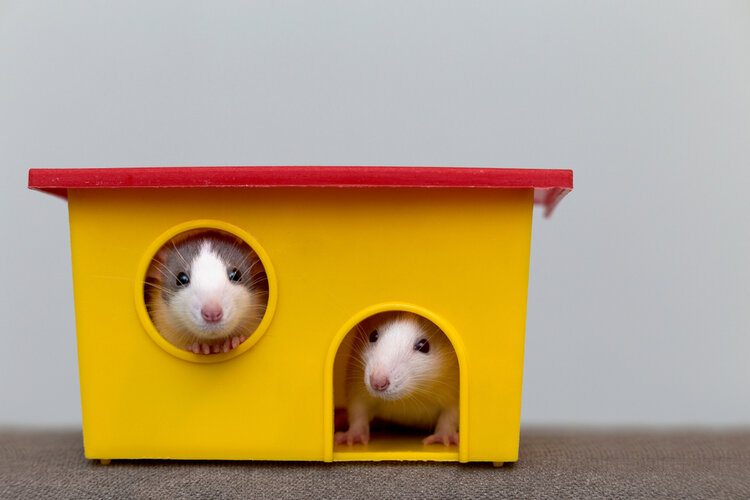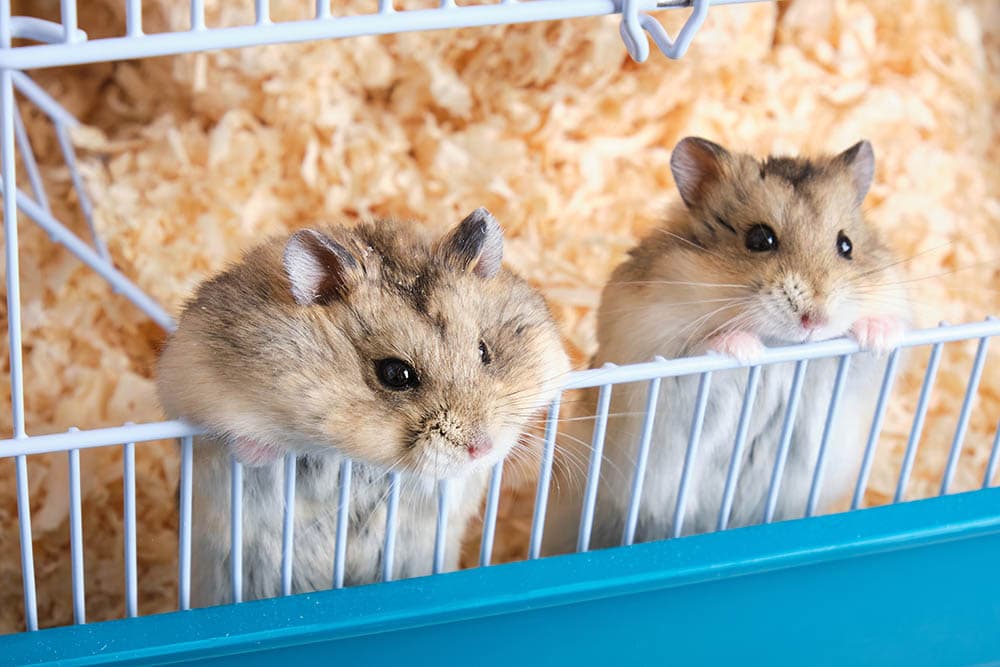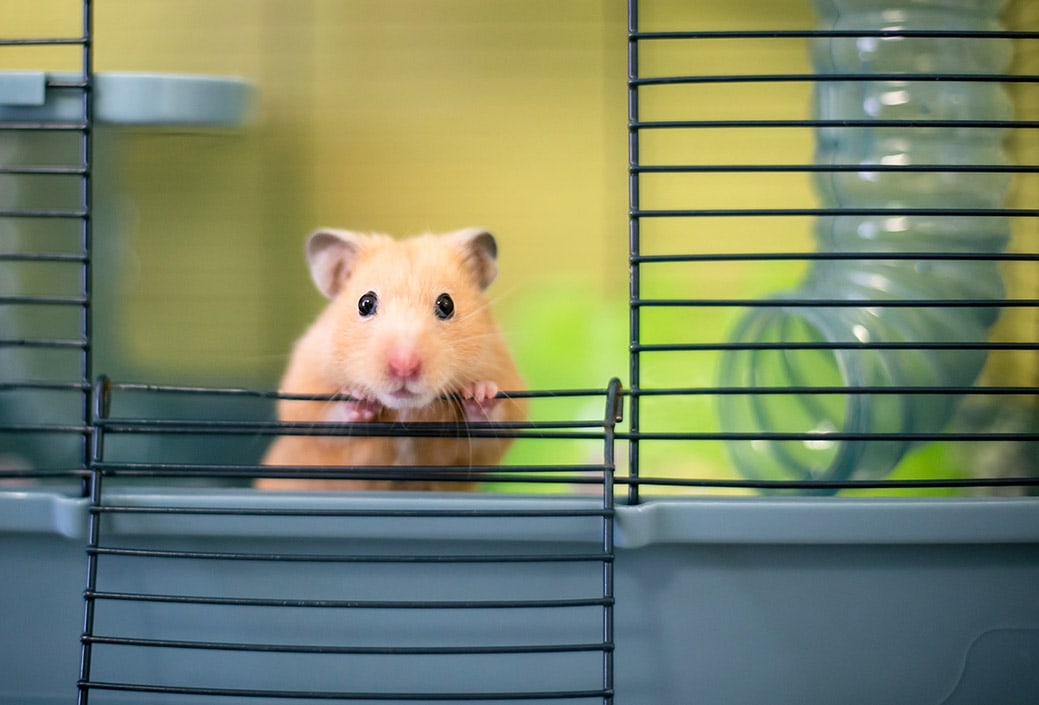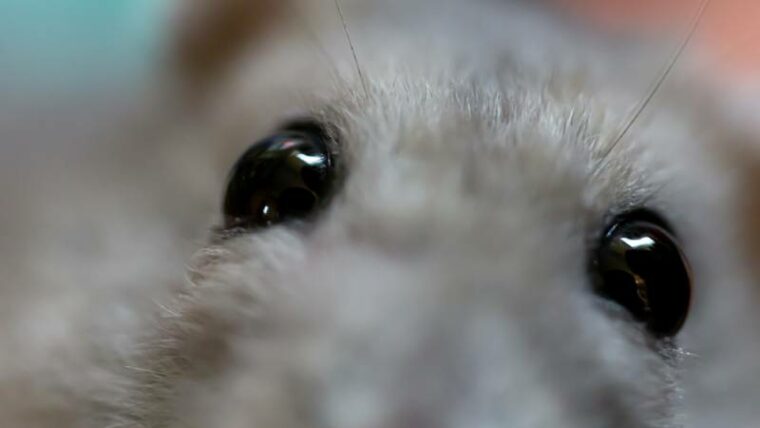
Anyone that has owned a hamster has likely observed them emerging at night. When it gets dark, the hamster wheel starts spinning. You can hear your hamster chewing and rustling and having a grand old time. This has raised an obvious question. Can hamsters see in the dark? Hamsters seem to get a lot done after the sun goes down as they are naturally nocturnal, so it is a fair question. Hamsters do have some adaptations to help them see in the dark, but not as many as other species. Let’s get down to the nitty gritty of how animals have evolved to see in the dark and see how hamsters measure up.
The Retina
The retina is the layer of cells at the back of the eye which detects light and sends signals to the brain; in other words the retina is responsible for seeing. The retina has a few different cell types but the two types of cells that detect light are called “rods” and “cones”. Rods are good at picking up low levels of light and function best in darkness. They don’t however provide color or detailed vision which is the role of the cones. The hamster’s retina is made up of 97% rods and 3% cones suggesting most of their vision is of low detail but adapted for darker environments.
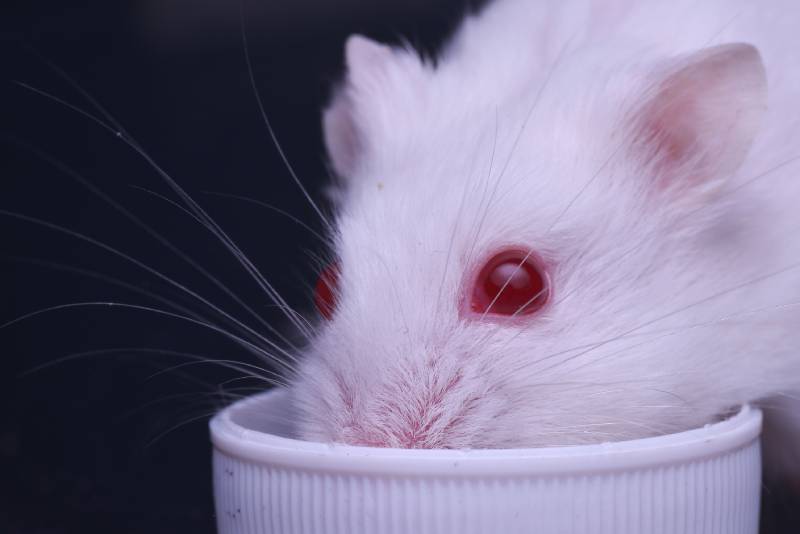
Eye and Pupil Size
You may have noticed animals that are nocturnal such as owls, tarsiers, some lemurs and galagos with very large eyes. These big eyes and wide pupils do more than make them look super cute. They actually allow more light to reach the retina so they can possibly see more in the dark than we can. So, while hamsters do not have extremely large eyes like tarsiers, they are also not the smallest eyes relative to their size in the animal kingdom and they do have a large pupil.
Tapetum Lucidum
The tapetum lucidum is a reflective layer at the back of the eye; it reflects light coming into the eye. You may have noticed in dogs, cats, horses and cows, their eyes seem to shine in the dark. This is because of the reflection of light from the tapetum lucidum. Animals with this feature can see better in low light as their retina has two chances to detect light- once on the way in and once on the way out. Hammys, though, do not possess this reflective layer.
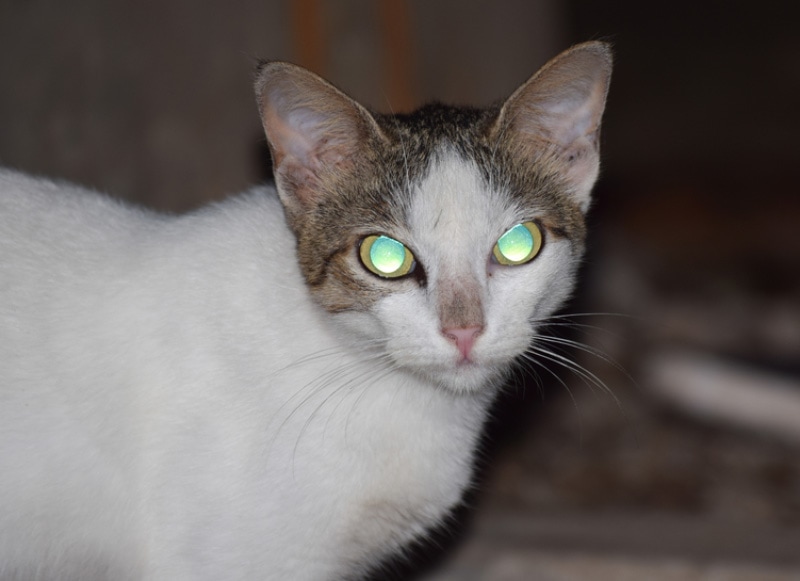
Is It Okay to Leave Your Hamsters in the Dark?
Yes. Hamsters can be left in the dark. You don’t have to worry about your hamsters feeling lonely or bored when it gets dark. Hamsters are creatures that are quite adapted to the dark for a number of reasons, so there is no reason to worry about your hamsters when the sun goes down.
Do Hamsters Like the Dark?
Hamsters are nocturnal, which means that they are most active during the night hours. That means that hamsters prefer to eat, dig, and roam around at night in the dark. Hamsters are adapted to this lifestyle.
The other thing that makes hamsters preferential to the dark is the fact that their burrows are often shrouded in complete darkness. Hamsters dig burrows, tunnels, and holes in the ground where they go to sleep, eat, and have babies away from hungry predators. Hamsters are used to living in the dark because there is very little light in their underground tunnels. All of these means that hamsters are used to the darkness.
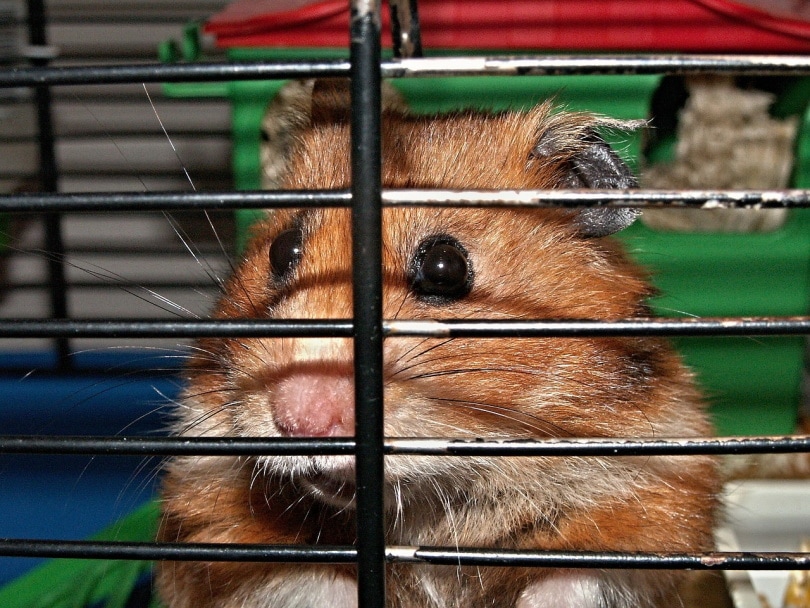
Why Are Hamsters Nocturnal If They Can’t See Well in the Dark?
One reason Hamsters are thought to be nocturnal is because it protects them from predators. Many animals hunt during the daylight or during the evening hours. Hamsters try to stay underground, hidden until the sun sets completely. Some animals, like owls, have adapted to hunting during the night hours so they can prey on rodents like hamsters that come out at night.
Also, many hamster species are found in the desert, and at night the temperatures are much lower than they are during the day so hamsters may benefit from the cooler temperatures at night
Conclusion
Hamsters do not see well in the dark but do have some adaptations to help them out. Their vision does not have high acuity like ours due to the lack of “cone” cells in the eye but their “rods” will help them see in low light. We can’t know exactly what a Hamster sees in the dark and all in all there are other species with much better adaptations for night vision, but your pet hamster will get by just fine.
Featured Image Credit: Dawid Sliwka, Shutterstock




